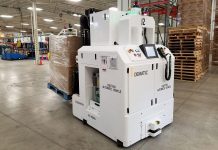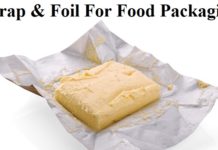The plastic injection molding machine industry is projected to experience growth, increasing from $9.5 billion in 2022 to $11.6 billion by 2028, with a compound annual growth rate (CAGR) of 3.4%. The surging demand in the automotive, packaging, and consumer goods sectors is the driving force behind the need for plastic injection molding machines. These machines play a pivotal role in the production of containers, bottles, caps, closures, and various packaging solutions. Intensifying competition among packaging manufacturers has led to the adoption of diverse packaging types. Furthermore, the call for sustainable and innovative packaging, particularly in the food and beverage industry, is expected to be a significant driver of market growth.
Within the plastic injection molding machine market, the segment with a clamping force of 0-200 tons is projected to be the second-fastest-growing in terms of value during the forecast period.
Clamping force denotes the force exerted on a mold by the clamping unit of a plastic injection molding machine to keep it securely closed. The plastic injection molding machines market is categorized by clamping force into three types: 0-200 ton-force, 201-500 ton-force, and above 500 ton-force. Notably, the 0-200 ton-force category is available in all three types of plastic injection molding machines, namely hydraulic, all-electric, and hybrid.
Hybrid machines are expected to witness the second-fastest growth in the plastic injection molding machine market, in terms of value, during the forecast period.
Hybrid injection molding machines also referred to as ‘servo-hydraulic,’ incorporate features from both hydraulic and all-electric injection molding machines, including hydraulic clamps, hydraulic injection, hydraulic ejection, 1-2 motors, motor/drive creating harmonics, and an 85-power factor. These hybrid machines find prominent usage in healthcare and electrical & electronics applications. The aging population and increased awareness of health issues are propelling the growth of the healthcare industry, subsequently driving demand for plastic injection molding machines used in manufacturing medical devices.
Packaging is anticipated to be the second-fastest-growing application segment within the plastic injection molding machine market, in terms of value, during the forecast period.
Changing lifestyles and the preference for home delivery services have led to a growing demand for sustainable packaging in the food and beverage industry. Plastic injection molding offers various advantages for packaging applications, including cost-effectiveness, design flexibility, durability, and efficient production capabilities. These factors collectively stimulate the demand for plastic injection molding machines in the packaging sector.
For decades, plastic injection molding machines have played a pivotal role in manufacturing, enabling the production of a wide range of plastic products. As we look ahead, it becomes evident that these machines are undergoing a remarkable transformation driven by innovation and a commitment to sustainability.
One prominent trend shaping the future of plastic injection molding machines is the integration of smart technology. These machines are now incorporating advanced sensors and data analytics, enhancing precision, productivity, and predictive maintenance. This smart manufacturing approach not only minimizes downtime but also reduces material waste, making the process more environmentally friendly.
Sustainability is a top priority, with the industry increasingly favoring recycled and bio-based plastics. Modern machines are designed with energy efficiency in mind, employing technologies like servo motors to reduce power consumption. Additionally, there’s a growing emphasis on minimizing the environmental impact of plastic waste, with some machines capable of producing parts with minimal material usage.
Moreover, customization and flexibility are gaining importance. Future machines will enable rapid changeovers and quick adjustments, catering to the demands of small-batch and customized production. This flexibility is crucial in addressing evolving consumer preferences and market demands.
The future of plastic injection molding machines is characterized by innovation and sustainability. As technology advances, these machines are becoming smarter, more eco-friendly, and highly adaptable. They are well-positioned to continue playing a pivotal role in manufacturing, addressing the challenges of the 21st century while minimizing their environmental footprint.























